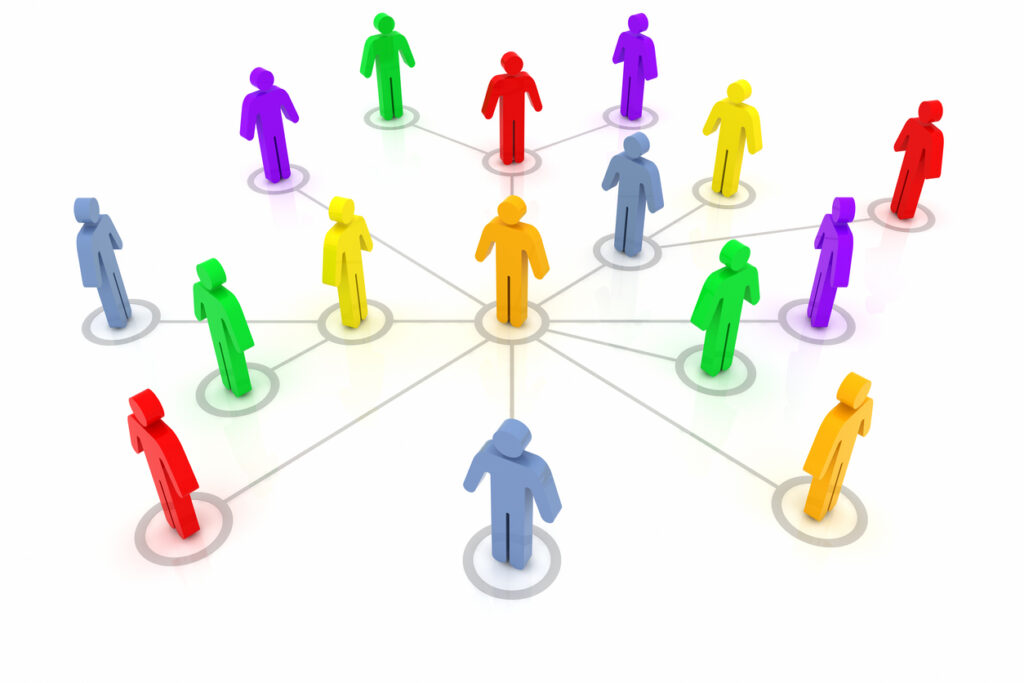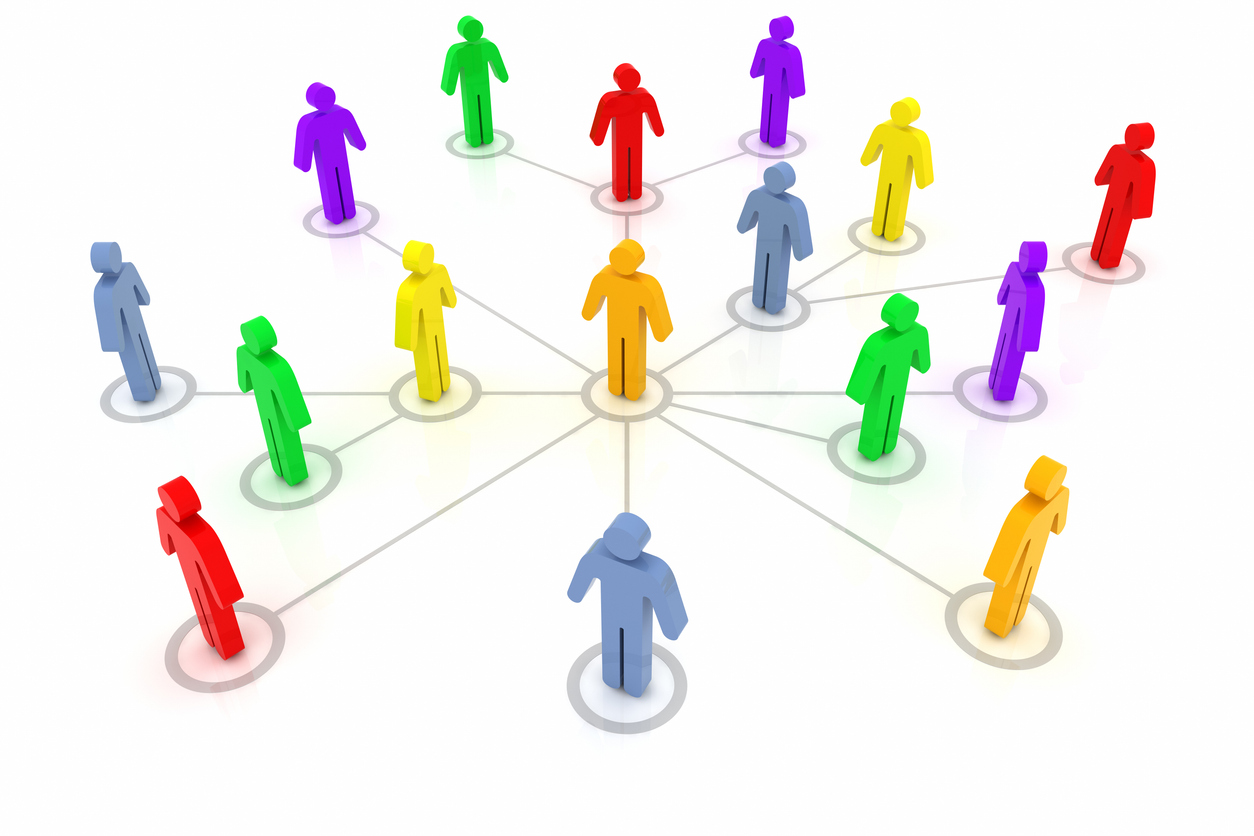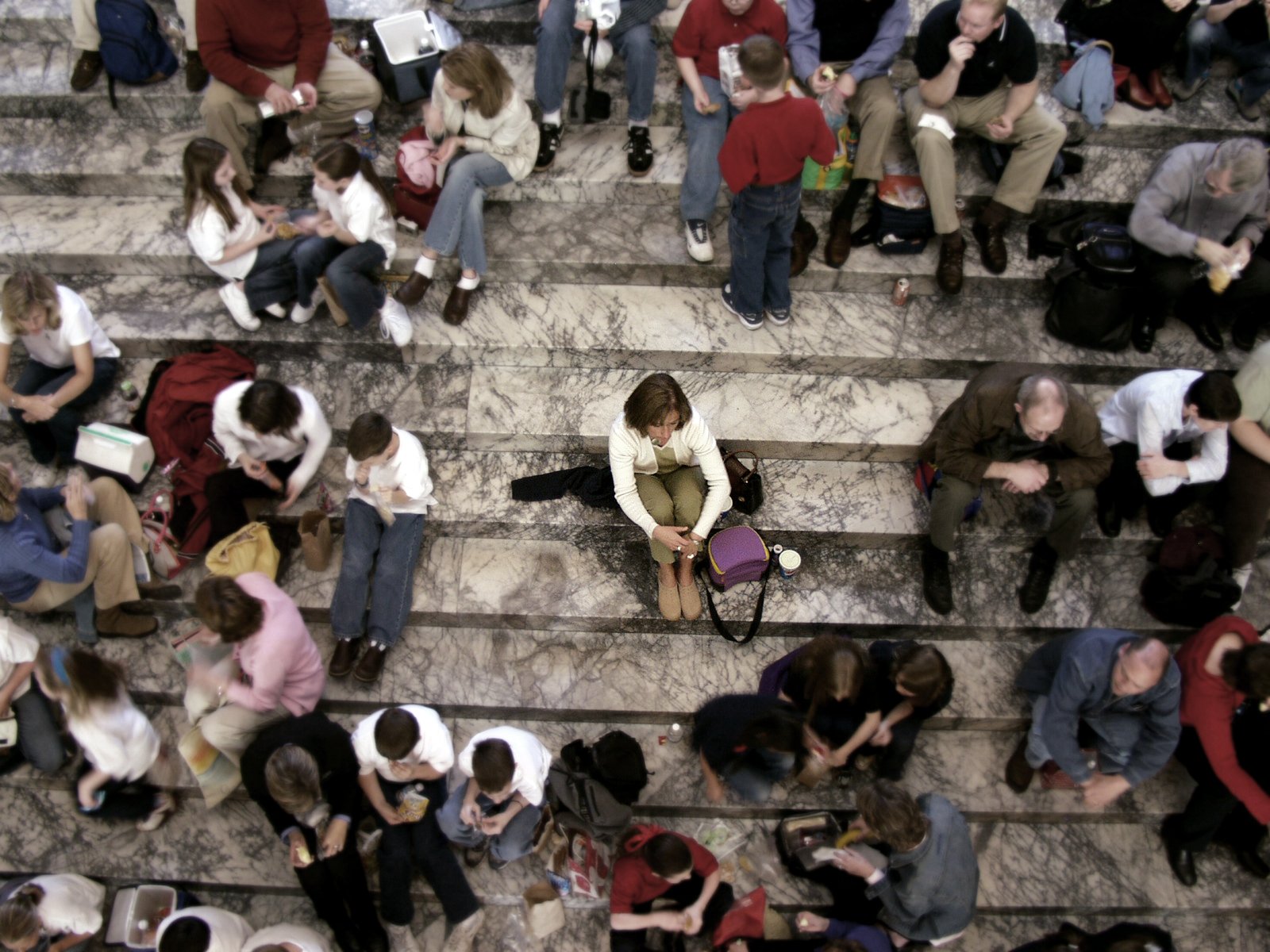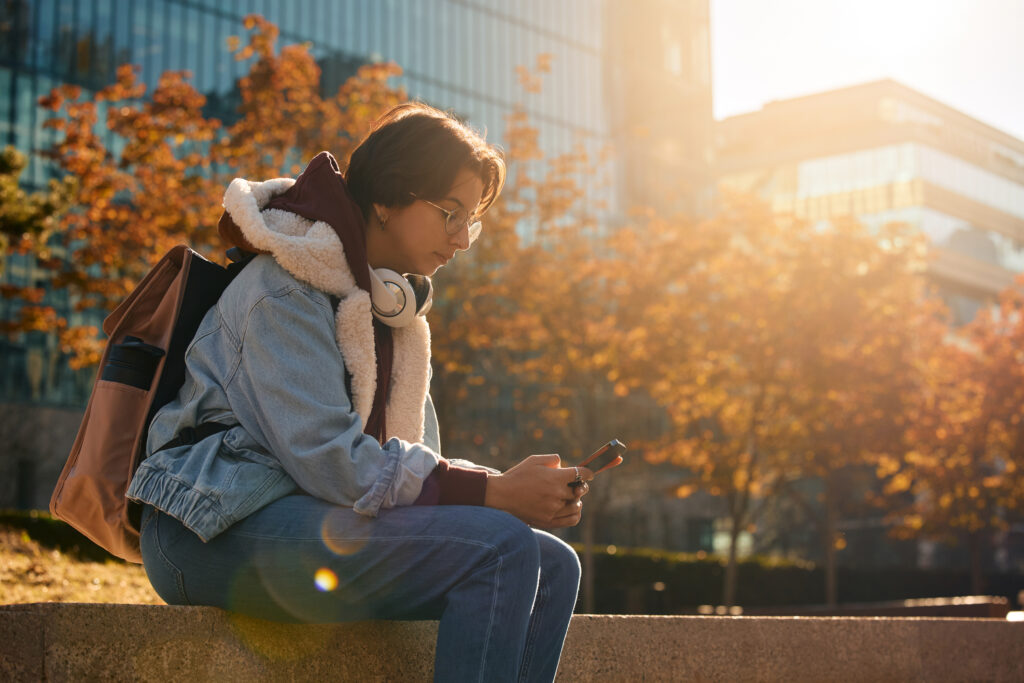New Narratives: Is the antidote for loneliness more social connections?

Through New Narratives, we’ll explore the multi-faceted nature of loneliness by sharing insights and stories from as many perspectives as possible, not only to help bridge the gap between isolation and connection but to also enrich our community’s understanding of loneliness.
Our latest narrative has been written By Antonia Ypsilanti, Associate Professor in Cognitive Psychology at the Institute of Social Sciences, Sheffield Hallam University and co-Lead of the Cochrane Global Ageing Thematic Group
Feeling connected in an age of constant interaction
We live in a world where social connections are constantly displayed, counted, and compared. At the university, especially during Freshers’ Week, when new students arrive for the first time, I often overhear conversations not just about friendships, but about numbers: how many followers someone has, how many group chats they’re in, or how many posts they’ve shared.
At the same time, people are often juggling several online interactions while being physically present in a group. It strikes me that many of us now exist in multiple social spaces at once, continuously switching between them. And I can’t help but wonder; where do we find the energy? This kind of constant social multitasking demands an enormous amount of attention and cognitive effort.

How much connection is too much?
It raises an important question: how many hours do we spend cultivating, maintaining and nourishing our social relationships? And how many of those connections can we realistically sustain? We frequently talk about “meaningful relationships,” and researchers now refer to the concept of a “social battery” as a metaphor for our capacity to engage socially before emotional depletion sets in.
Yet, if one searches the word loneliness online, the images that appear are almost always the same: a person alone often in grayscale looking sad.
The message is clear; being alone equals sadness. The assumed remedy? Be around people. Add more contacts. Stay plugged in. Since when did solitude become a condition to be avoided or worse, a source of shame?
Rethinking loneliness and solitude
Drawing from my research on loneliness and that of colleagues who study social connection, I would like to address a fundamental but often overlooked question: is loneliness just about being alone and more importantly is the antidote to loneliness more social connections? Certainly not.
Decades of empirical work show that loneliness is not defined by physical isolation but by a subjective mismatch between the relationships one has and the relationships one wants. You can feel lonely in a crowd or entirely content in solitude, the latter sometimes called “positive solitude” or “solidarity with the self.” Loneliness is moderately correlated with the number of social contacts one has, which means that for some people, lack of social connection does contribute to their loneliness.
This is because reasons for limited social contact may be situational rather than personal. A person working remotely, someone living in a geographically isolated area, an individual who has recently moved to a new city, may feel lonely, but none of these reasons reflect character flaws or social incompetence. They reflect life conditions.

There’s no magic number of social connections
So, how many social connections does a person need to feel less lonely? The truth is, there’s no magic number. It depends on many things including our personality, life circumstances, available resources (what our “social battery” can handle before it runs out), and the unique ways we connect with others emotionally. For some, a small circle of close, secure relationships is enough to feel fulfilled. Others thrive in larger, more fluid networks, drawing energy from frequent social interactions – what a friend of mine once called “fast-food relationships.”
Ultimately, loneliness doesn’t arise from how many connections we have, but from whether those connections truly meet our emotional needs. Perhaps the popular belief that “the more socially connected we are, the better” is, in fact, biologically flawed. Research in social neuroscience suggests that humans have a limited capacity for emotional investment. Just as our cognitive load restricts how many tasks we can handle at once, our emotional bandwidth limits the number of relationships we can meaningfully sustain.
Too many, and unsatisfying social connections may actually increase loneliness, as we may feel less understood.
Importantly, loneliness is a biological signal, designed to motivate reconnection and thus is adaptive.
When persistent, it becomes harmful because it’s linked to increased stress which in turn elevates cortisol, disrupts sleep and weakens immune function. Yet forcing countless interactions is not the solution for everyone. Some people may not need to be constantly surrounded by others, instead they may need to be understood, remembered and valued.
Perhaps then the antidote to loneliness for some people is not more connections, but better ones; fewer conversations, more sincerity; fewer followers, more belonging; less judgement, more recognition and acceptance.
Biography

Antonia Ypsilanti
Antonia Ypsilanti is a psychologist whose research explores persistent loneliness and mental health across the life course. She is particularly interested in understanding why loneliness develops and how it endures over time, with the goal of preventing mental health difficulties in people across all age groups.
Her work focuses on co-developing evidence-based, tailored psychological interventions that are brief, scalable, and accessible to all. She adopts a nuanced perspective and studies the underlying mechanisms that maintain loneliness, combining scientific enquiry with input from people who have lived experience. Antonia also co-leads an international network of loneliness researchers, fostering collaboration among experts and stakeholders dedicated to addressing loneliness and its impact on wellbeing.





Responses